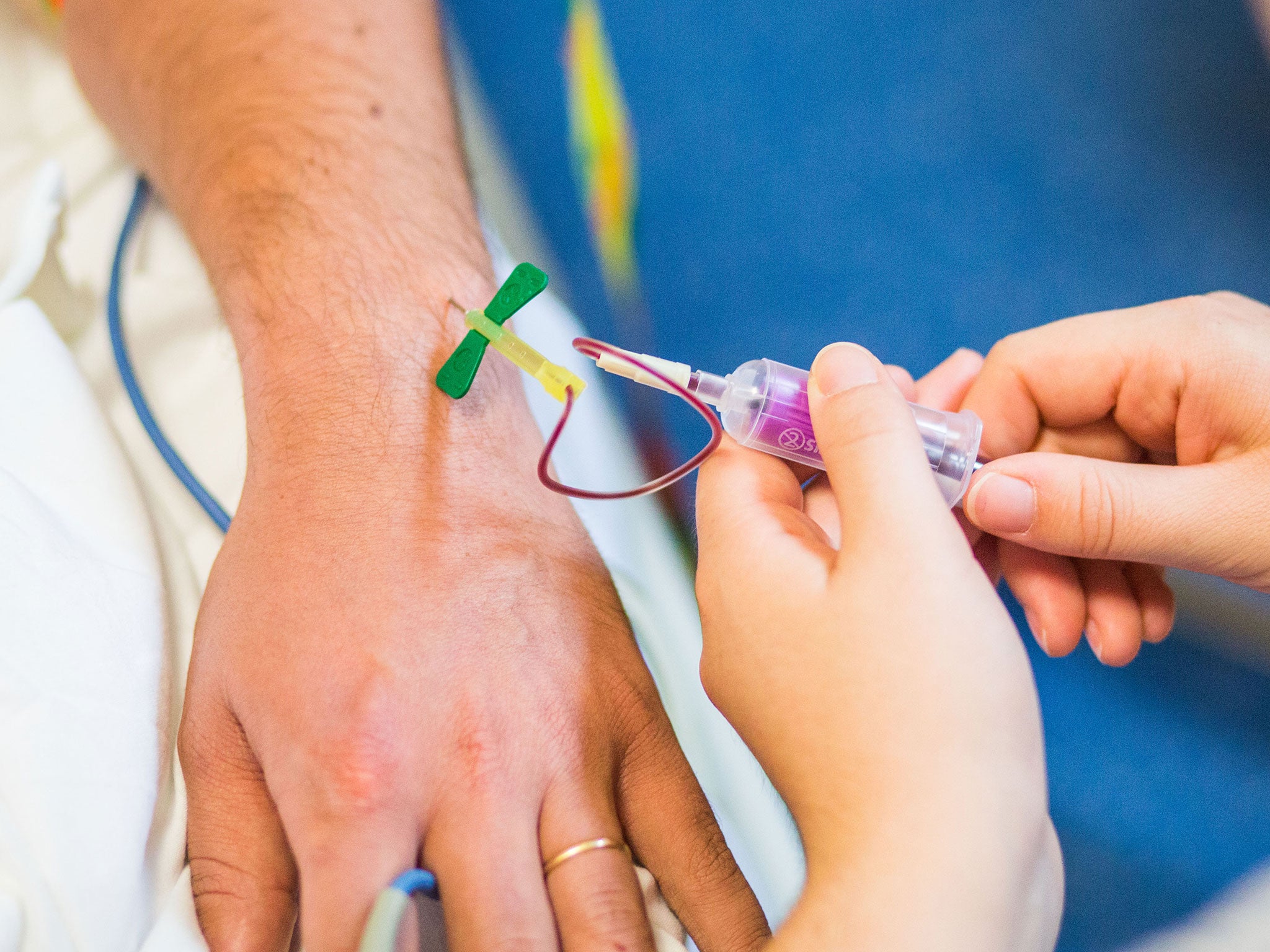Simple blood test could rule out heart attacks
Researchers say test could 'dramatically' reduce unnecessary hospital admissions

Your support helps us to tell the story
From reproductive rights to climate change to Big Tech, The Independent is on the ground when the story is developing. Whether it's investigating the financials of Elon Musk's pro-Trump PAC or producing our latest documentary, 'The A Word', which shines a light on the American women fighting for reproductive rights, we know how important it is to parse out the facts from the messaging.
At such a critical moment in US history, we need reporters on the ground. Your donation allows us to keep sending journalists to speak to both sides of the story.
The Independent is trusted by Americans across the entire political spectrum. And unlike many other quality news outlets, we choose not to lock Americans out of our reporting and analysis with paywalls. We believe quality journalism should be available to everyone, paid for by those who can afford it.
Your support makes all the difference.A new blood test is set to revolutionise diagnosing heart attacks and could halve the number of patients admitted to the NHS.
Trials on the test, which takes only 30 minutes and looks for a chemical in the blood, found it was 99.6 per cent accurate, according to results published by the Lancet.
Roughly a million people go to A&E complaining of chest pains every year.
Current procedures require two tests: one when the individual is first admitted and another 12 hours later.
Present tests scan the blood for a chemical known as tropoin – released by damaged heart muscle – but the new test can determine much lower levels of the chemical in only 30 minutes.
Afterwards, instead of staying overnight as many patients currently do, people could be immediately discharged – helping patients’ mental wellbeing and saving money.
Scientists who developed the test at Edinburgh Royal Infirmary also claim the test costs less than £10, although many UK hospitals currently lack the facilities to implement it.
"It's really exciting. When you look at patients who come to medical wards with chest pain, 80 per cent are going home 12 hours later,” Dr Atul Anand, a researcher and a doctor at the Edinburgh hospital where the test has been trialled, told the BBC.
These findings could provide substantial cost savings for healthcare provider
The test has been trialled on 6,304 people, with the British Heart Foundation planning a wider trial of 26,000 people across the UK.
"A faster, more accurate diagnosis of whether chest pain is caused by a heart attack would be better for patients and save the NHS money,” commented professor Jeremy Pearson from the British Heart Foundation.
Join our commenting forum
Join thought-provoking conversations, follow other Independent readers and see their replies
Comments